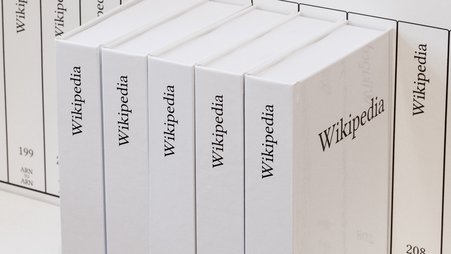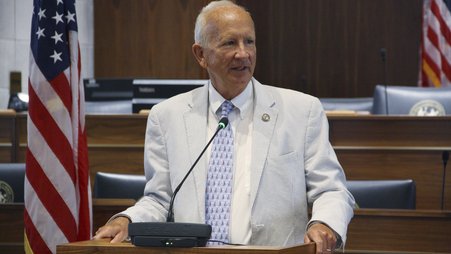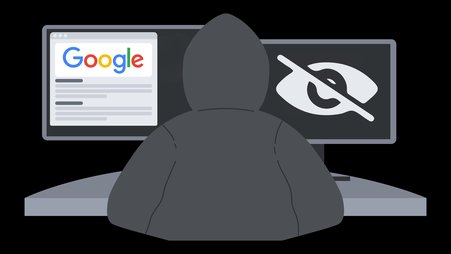
The Pentagon Papers case famously established that, even in wartime, the government cannot prohibit speech by claiming a threat to national security. Justice Hugo Black explained that “the word 'security' is a broad, vague generality whose contours should not be invoked to abrogate the fundamental law embodied in the First Amendment.”
Good thing that’s settled. Or so we thought.
Fast forward 50-plus years and officials from both parties, with White House support, want to ban a whole social media platform, TikTok. Around 150 million Americans, including plenty of journalists, use it to communicate. The proposed ban is based largely on speculation that its parent company, ByteDance, will share data with the Chinese government to spy on America and propagandize Americans.
There’s no public evidence that’s actually happening. Regardless, no one can explain how TikTok data in the hands of Chinese spies — as bad as that may be — would create the kind of grave, imminent and otherwise unavoidable threat required to justify upending First Amendment law and allowing for such an unprecedented “prior restraint.” Similarly, the U.S. government has released no proof that the Chinese government has hijacked TikTok’s algorithms to propagandize American citizens or that any such efforts are effective enough to threaten national security. Instead, censorship proponents seem to be advocating to ban the app just in case. That’s fundamentally unAmerican.
Of course, this ban will have a direct impact on journalism. Thousands of journalists and media outlets use TikTok to share news stories. Millions of Americans use it to consume news. And who knows how many sources find reporters through using the app.
But if we accept the arguments for banning TikTok, what might come next? The consequences are even more catastrophic. Bans on foreign news websites that track Americans' clicks and comments? For example, the Guardian must have a gold mine of information on the millions of Americans that read it every day. Now, you’ll probably say: That's absurd! There’s no evidence the Guardian is handing that information over to the U.K. government, and even if it was, we still have the right to read it!
Well, how is that different from TikTok?
Bans on foreign state-owned media based on fears they might propagandize Americans would also become a lot easier. Once TikTok, which isn’t even owned by the Chinese government, is defunct it’s not difficult to imagine political support for banning RT or Al Jazeera. Many U.S. allies have media outlets that operate in the U.S. as well. Is it just up to staying in the good graces of politicians or the White House that decides whether a communications platform can live or be banned in the U.S.? Like it or not, the First Amendment means Americans have the right to receive information they choose, even foreign propaganda.
Once we’ve destroyed all our credibility on the issue, why wouldn’t foreign countries reciprocate by barring American websites, platforms, and media outlets? The U.S. government already criticizes China for banning or censoring U.S. tech companies — as they should. The hypocrisy would become overwhelming.
Banning TikTok shouldn’t even be up for discussion because censoring communications from foreign countries — let alone entire platforms — is plainly unconstitutional. For example, the 1965 case Lamont v. Postmaster General rejected a law delaying delivery of mail containing “communist political propaganda.” The Supreme Court said the law was “at war with the ‘uninhibited, robust, and wide-open’ debate and discussion that are contemplated by the First Amendment.”
It seems doubtful that the law would have fared better if, instead of targeting communist propaganda, the postal service banned all mail from communist nations. Proponents of the TikTok ban cite worries that China will use TikTok for “malign influence campaigns” that are indistinguishable from the concerns that Lamont held could not justify censorship.
In fact, laws authorizing presidents to restrict foreign transactions have exempted publications and communications because Congress recognized the First Amendment required their exclusion. Congress may try to legislate around that exemption to enable a TikTok ban, but it can’t erase the First Amendment — which is what necessitated the exemption in the first place. And courts already rejected the Trump administration’s efforts to ban TikTok and other foreign apps on constitutional grounds. Trump cited the same vague privacy and security concerns being invoked now.
If susceptibility to “malign influence campaigns” is the new American standard for banning communications apps, then every U.S.-owned social media company would face a ban, too.
As Mike Masnick explained in Techdirt, the Supreme Court long ago rejected efforts to shut down, for example, entire book stores and media outlets because they allegedly carried some illegal content. A TikTok ban would cast an even wider net than those unconstitutional censorship campaigns. If there’s proof of illegal conduct on TikTok then Congress should specifically target the illegality — not ban the entire app.
This should be a major section of every news article on this debate, yet many leave it out of the discussion entirely.
Americans who value free speech should urge their representatives to address privacy concerns with stronger privacy laws, not mass censorship.




